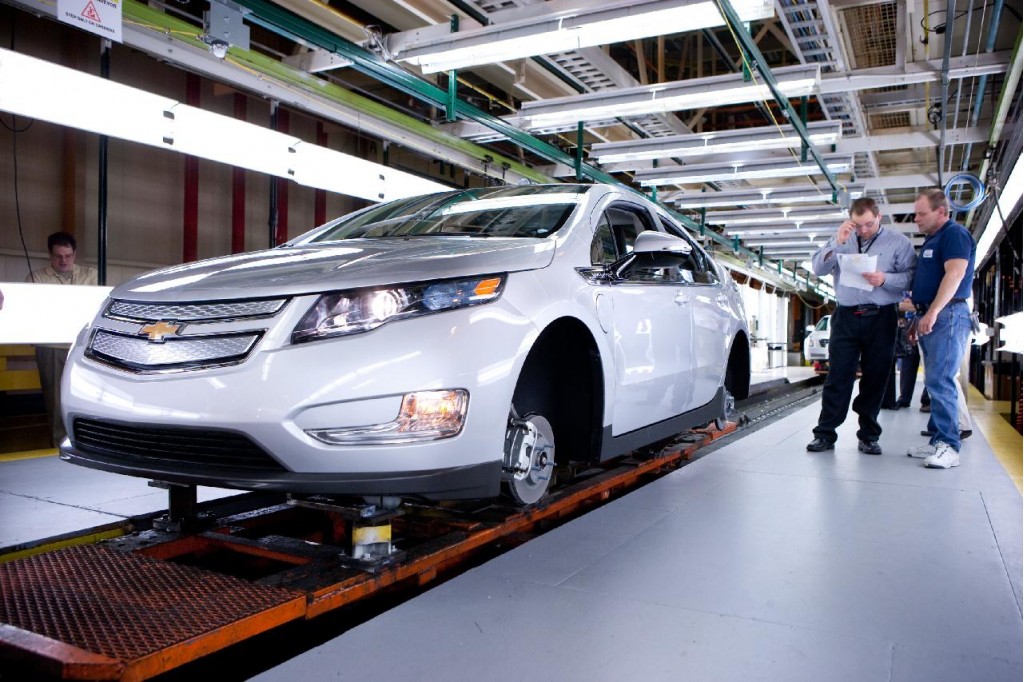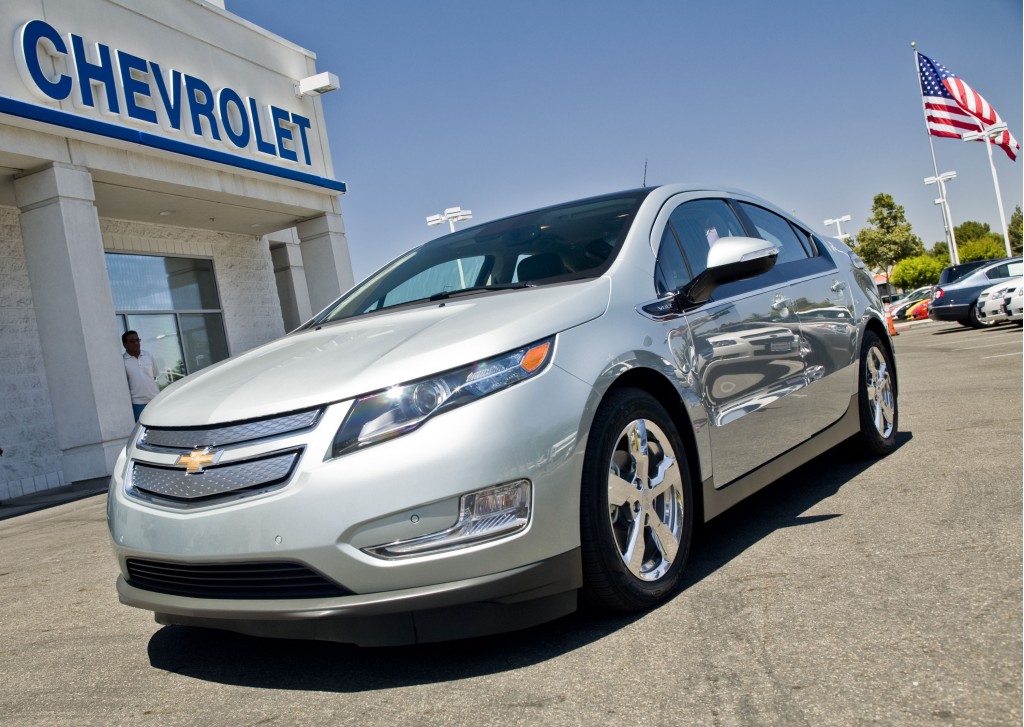Fear is a powerful motivator. It has been used in the past to start wars, persuade kids to study at school and of course, sell life insurance.
But now GM appears to be gearing up to use the fear of running out of electricity to give the extended-range 2011 Chevrolet Volt a competitive edge over purely electric cars.
In a move which will not improve the company image among many electric vehicle advocates, GM has applied to trademark “range anxiety” in order to promote “public awareness of electric vehicle capabilities”.
If granted trademark status, range anxiety could be used exclusively by GM to compare the 2011 Chevrolet Volt to pure electric vehicles, such as the 2011 Nissan Leaf.

First 2011 Chevrolet Volt built on production tooling at Detroit Hamtramck plant, March 31, 2010
And while the 2011 Volt will travel several hundred miles powered by electricity generated by the on-board gasoline-powered generator, cars like the 2011 Nissan Leaf will travel at least 100 miles per charge of electricity.
Listening to Joel Ewanick, GM’s head of U.S. marketing, you would be forgiven for thinking pure electric vehicles would lead to stranded cars on every freeway in the country.
“It’s something we call ‘range anxiety,’ and it’s real. We’re going to position this as a car first and electric second...people do not want to be stranded on the way home from work.”
The argument is futile, when most commutes in America are less than 40 miles per day.
Either the 2011 Chevrolet Volt range is less than GM would like to admit, or the advertising campaign could cost GM future customers.

2011 Chevrolet Volt
In contrast to scaring drivers that electric vehicles won’t provide reliable enough to operate without a backup generator, Nissan’s approach to range anxiety seems to be over engineering. In our experience with the car, the 2011 Nissan Leaf reliably has a range of at least 100 miles per charge.
Providing reliable, consistent performance and estimating a maximum range well below what the vehicle is really capable of is surely a better way to sell a car than scaring customers into believing not buying a particular product will leave them stranded.
To quote StarTrek’s interminable Mr. Scott, “A good engineer is always a wee bit conservative, at least on paper”.













